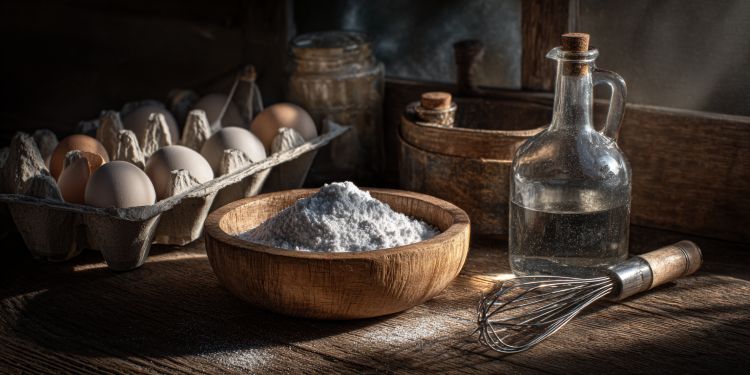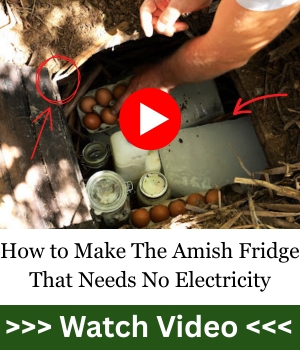Most people think eggs are the sacred glue that keeps baking together, but that is only because the modern food industry wants you dependent on products instead of knowledge. The truth is simple. You can replace an egg with common pantry ingredients and get the same result without ever cracking a shell. And once you understand how it works, you will realize how fragile the whole food system really is. There are many more baking soda substitutes than you might think.
Why Baking Soda Works as an Egg Substitute
Eggs do two things in baking. They provide lift and they help bind ingredients. Baking soda mixed with an acidic liquid can do the same thing. The reaction releases carbon dioxide, creating tiny air pockets inside your batter.
A simple ratio replaces one egg every time: 1 teaspoon baking soda + 1 tablespoon vinegar.
This combo gives your batter the rise it needs without relying on store bought eggs. And unlike eggs, baking soda does not spoil, does not need refrigeration, and does not vanish from shelves the second a crisis hits.
The Science Big Food Does Not Want You Thinking About
Baking soda and vinegar create a chemical reaction that activates instantly. The bubbles expand during baking, making muffins, pancakes, and quick breads fluffy and light. You do not need proteins, you do not need shells, and you do not need a single farm truck delivering anything to your store.
Compare this to eggs. If the hens get sick, if fuel spikes, if one supply line fails, the shelves empty. Your kitchen shuts down. Most people have no backup plan. But one small box of baking soda and a bottle of vinegar can carry your entire baking routine by themselves.
Real Results When the System Fails You
Try this test. Make two batches of pancakes. One with eggs and one with the baking soda substitute. Most people cannot tell the difference. Some actually prefer the texture you get from the substitute because it is lighter and cleaner. And if you are in a crisis scenario or dealing with shortages, this trick becomes more than a convenience. It becomes a survival skill.
When the world goes into panic mode over empty egg coolers, you will be baking like nothing happened. That is the difference between depending on a system and building true self reliance.
Why This Trick Matters for Preppers and Homesteaders
Knowledge like this separates those who freeze during a disaster from those who adapt. Baking soda is cheap, shelf stable, and incredibly versatile. Once you understand it can replace eggs, you start realizing how many other “essentials” are not essential at all. The more alternatives you learn, the harder it becomes for any supply shortage to affect you.
This is how real preparedness works. Quiet skills. Simple tricks. Old world knowledge that does not rely on corporations, grids, or fragile supply chains.
Unlock the Forgotten Foods That Keep You Alive
If discovering a simple baking substitute opened your eyes, wait until you see what else you can do with the foods our grandparents relied on. The Lost Superfoods is a powerful guide that reveals survival foods designed to last for decades without refrigeration, electricity, or modern processing.
Inside, you will learn:
- Foods that stay safe for 30 years or more
- Old world preservation techniques you can use today
- Forgotten recipes that kept families alive through wars and economic collapse
- High calorie, nutrient dense foods you can prepare with minimal supplies
- Storage methods that protect your food from time, pests, and disasters
This book teaches you the kind of food independence the modern world quietly hopes you never discover. If you want to build a pantry that survives outages, shortages, inflation, and full blown crises, The Lost Superfoods is the roadmap you need.
Take control of your food security now, while you still can.
You may also like:
 Can You Substitute Baking Powder for Baking Soda?
Can You Substitute Baking Powder for Baking Soda?
75+ DIY Projects For a Self-Sufficient Homestead (Video)
Baking Soda – 112 Uses (WWII Series)
Baking Soda Substitute in Baking: What Every Prepper Should Know






















Very insightful article! As Vaividya Events, we found this baking soda egg substitute tip surprisingly useful—simple, smart, and great for emergency situations. Thanks for sharing!